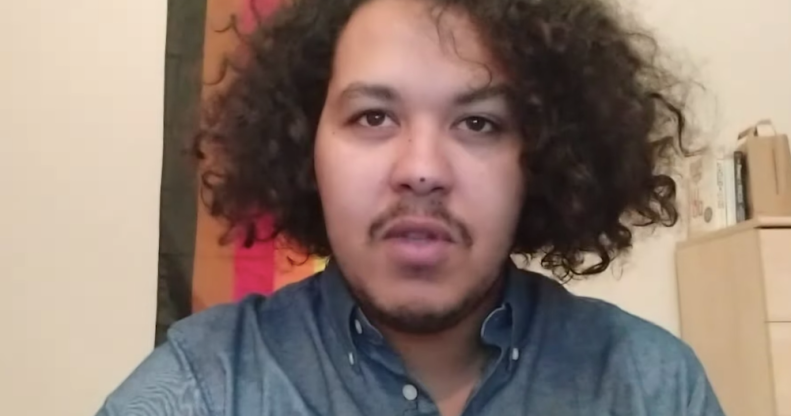Gay asylum seeker flees persecution in Morocco, only to endure more homophobia when arriving in the UK

Abderrahim El Habachi, a 28-year-old gay writer, actor and asylum seeker from Morocco. (YouTube/ Welsh National Opera)
Gay asylum seeker fled Morocco, fearing for his life, only to endure more homophobia when arriving at his accommodation in the UK.
Abderrahim El Habachi was scared for his life while living in Morocco, where being gay is illegal, and was constantly trying to evade the police.
He previously told ITV: “It was always, ‘hide yourself, hide yourself’, and don’t show your colours.
“If you show your colours it means that you are going to face the most discriminatory behaviour and homophobia… If people sense that you are gay, they can beat you – and you have no right to complain.
“You are the victim at that moment but in the eyes of the law, you are the criminal because you are gay.”
But the 28-year-old writer and actor claims he was left feeling “unsafe” after being housed with men from North Africa and the Middle East who subjected him to homophobic abuse, according to the BBC.
Although the Home Office insists that accommodation for asylum seekers must “take account of any circumstances and vulnerability”, El Habachi said: “I had fled a country that was dangerous for me, because of who I am, and I was put in an environment that felt more dangerous than the situation that I left.”
He is now calling for specialised housing for LGBT+ asylum seekers in Wales, having been told that none existed when he arrived in the UK.
He spent 50 days in housing provided by the National Asylum Support Service, a stay that he said “felt like a lifetime”.
“I felt so unsafe and vulnerable,” he said. “I thought I would come here and be able to embrace myself but instead I was feeling very insecure.
“It was as though there was no effort to make LGBT+ people welcome, the drop-in centres for asylum seekers and refugees weren’t LGBT-friendly, they were mainly aimed towards cis men. I was made to feel unwelcome.”
The Home Office told the BBC in a statement: “We provide LGBT+ asylum seekers with details for a range of organisations which can provide support from the point of their claim.
“We also require our accommodation providers to take account of any circumstances and vulnerability, with two of them offering designated accommodation for LGBT+ asylum seekers.
“Every asylum claim is considered carefully, sensitively and on its individual merits by caseworkers who receive extensive training.”
Since 2017, El Habachi has had his asylum application rejected, as well as an appeal, as the UK government decided that it was safe for him to return to Morocco.
Any form of same-sex intimacy – including kissing – is illegal in Morocco and is punishable by up to three years in prison.
He said: “I have been persecuted as a gay man in the country, so for them to say I can go back and live openly as a gay man is ridiculous.”
Although he felt defeated, he has been supported by the Welsh LGBT+ community to make another application, which is currently pending.

